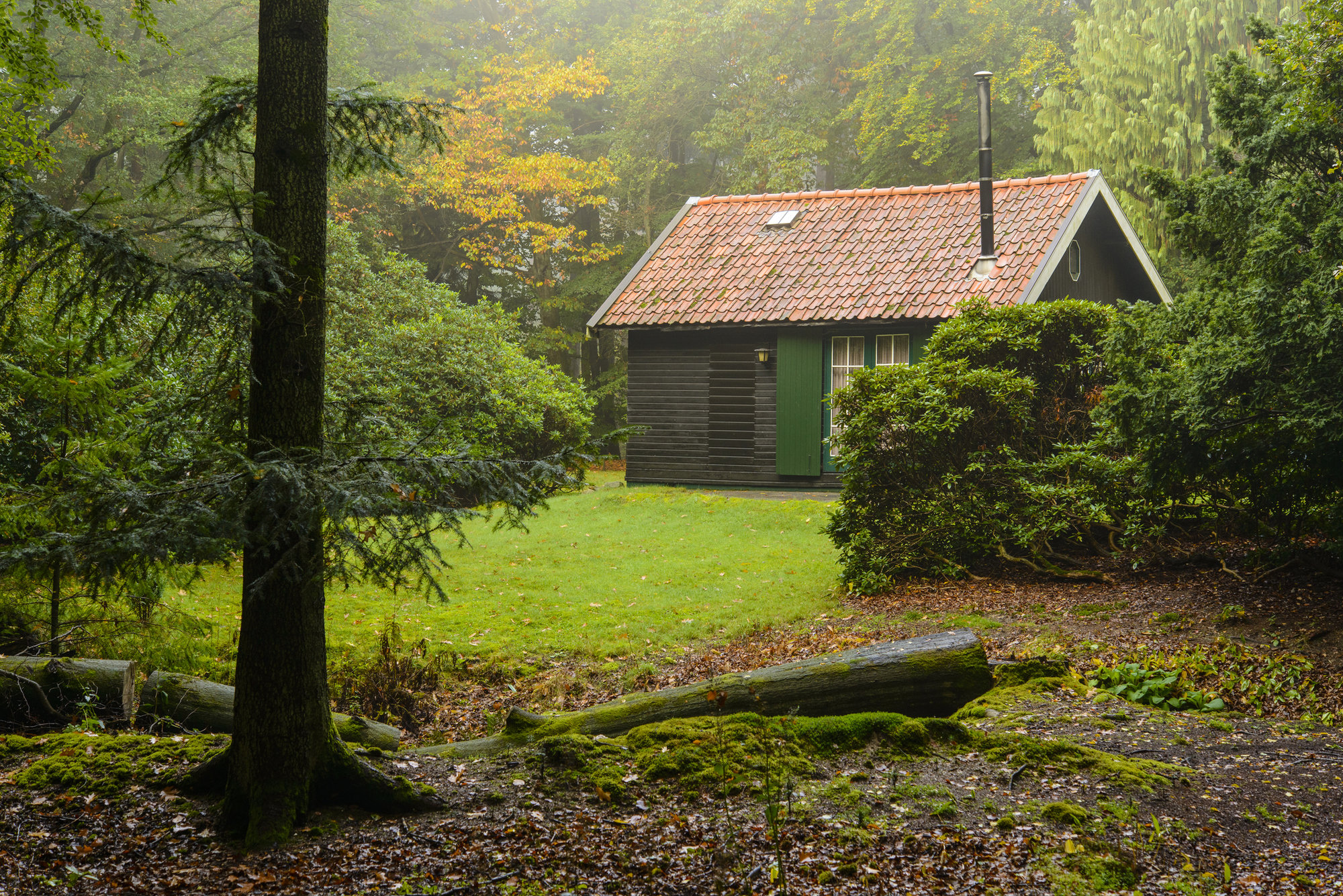
With most countries entering their second month of sheltering in place, talk of isolation fatigue and the strain of being separated from family members is near constant. But the story one Canadian mother is sharing this week is truly jaw-dropping. According to the unnamed woman, her 12-year-old son has been living in isolation for a full year thanks to his severe behavioral challenges. And now, because of the current health crisis, she can't even visit him.
The unidentified mother's story was profiled by CBC News, and it describes her son's strange-but-true living arrangements.
The boy is said to live inside a small four-bedroom bungalow deep "in the woods" of New Brunswick, Canada. But he's not living there with his family or even one of his parents. Instead, the unnamed boy lives in self isolation, cared for by workers who come to the home in round-the-clock shifts.
The protocol is bizarre, to say the least.
No fewer than two workers can be there at any given time, and their responsibilities include feeding the 12-year-old, giving him his medication, and documenting his behavior. Often, that behavior includes violent outbursts, which require the workers to intervene. At times, they even have to restrain him.
The home itself sits on an acre of land on a quiet, rural road that runs through forest. Nearby are two picturesque lakes.
According to the boy's mother, however, her son's living arrangements are less than idyllic. In fact, they amount to nothing more than a prison.
"He's in his own private jail," the woman shared. "It's inhumane."
She told CBC that the home is stripped bare so the boy cannot use his surroundings as weapons against his caretakers or damage the property.
Other elements of the home have been carefully thought out too — such as the lack of a shower curtain in the bathroom and a toilet made of steel instead of porcelain. Appliances like the stove and refrigerator have been moved into a locked room. And although the boy can watch TV, it's encased in a Plexiglas box to prevent him from damaging it.
"This is the harshest environment I have ever experienced," said the mother, who asked to remain unnamed to protect her son. "The bottom of the barrel."
Keeping it all running is expensive too.
According to the mother, Canadians would be shocked by just how many tax dollars go toward funding these special placements. CBC's reporting estimated that they cost anywhere from $27,000 to $62,000 per month, mostly to cover worker salaries. Annually, that comes to about $421,000 per child.
The description of the boy's life inside the bungalow is pretty chilling, though CBC also recounts how it came to this.
The circumstance is described by Canada's Department of Social Development as a "specialized placement," and is reserved for complex cases in which adolescents are a danger to themselves and/or their family, and cannot be safely housed in foster care or a group home.
The boy's parents agreed to surrender custody of their son to the state because they believed he'd be sent to a group home, where he'd hopefully get more support and guidance than they could offer. It's unclear if he ever was, but according to CBC, the child was moved into self isolation in April 2019, which is when the mother said she withdrew her consent.
However, that didn't mean he returned home.
By September 2019, the department had applied to place the boy in temporary protective custody, and in October 2019, a six-month order was granted.
The problem is, the boy has a long history of violence against others.
Much of that has involved conflicts at school, which put others at risk.
In first grade, he threatened to kill a teacher's aide and was suspended several times. By second grade, he'd "punched the principal, smashed up a phone, and pretended to point a gun at his mother when she came to pick him up," CBC reported.
The issues haven't stopped since he's been in the bungalow. In fact, after he turned 12 last month, he was arrested on a charge of possession of a weapon for a dangerous purpose, the CBC noted. He tore a strip off a door and left the house after one of the employees in the house had an anxiety attack. The incident was later dropped.
His mother defends her son, even now.
"It's not as satanic as it sounds," she said, arguing that school system did not do enough to help her son.
Her son's educators -- and the county courts -- seem to disagree with the boy's mother.
Throughout his early years in elementary school, the boy was evaluated by doctors and psychiatrists many times, and even admitted to psychiatric wards. On one of these visits, an outburst led four guards to hold him down while nurses gave him emergency sedation to calm him.
His official diagnosis appears to be complex — CBC reported that doctors found he has oppositional defiant disorder, autism spectrum disorder, and attention deficit and hyperactivity disorder.
Finally, he was suspended in March 2019 for bringing knives to school and was told he was unable to return.
At 5'5" and 260 pounds, the boy's mere size also made him hard to control, and it was soon found that he posed a danger to his siblings and mother.
His mother, who at this point was pregnant with another child, feared for her unborn baby, so she reluctantly agreed to relinquishing custody.
A year later, and authorities still think he's a threat to others, according to court affadavits, CBC reported. In fact, officials want to extend the boy's custody order by six more months.
His mother, however, would like him to come home. "He'll be safer here," she told CBC, "if they'll give me some training and support."
For a while, the mother was visiting her son regularly. But then the virus hit, and as of mid-March, her visits were canceled.
She worries for his mental health and instability, being that he can't even see family. And adding to the torture is the fact that she's unsure when the ban exactly will be lifted.
She's fighting for him to safely return home, arguing that he'll be better cared for by family than where he is now. But the battle is sure to be an uphill one — when it can even start.
The mother was expecting to attend a four-day hearing this week, but has since learned it's been delayed because of the current health situation. At the same time, she admitted to CBC that it's been strange hearing about so many families struggling through isolation from their families these past several weeks, when she's been dealing with it for a year.
"That's been our life," the mother shared.




